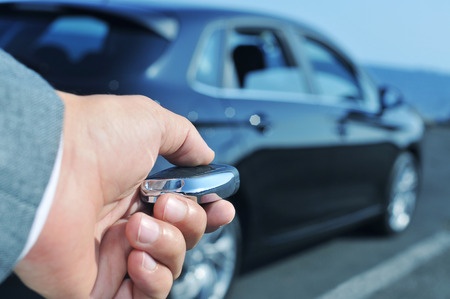The company car is always a hot item in the Netherlands. The problem is that it is convenient to have the company pay for the running costs of the car, and the person driving it enjoys the usage at low or no costs. If you are an employee of the company, the usage of the company car is a remuneration in kind. If you are the owner of the company and maybe not being the employee, the same type of remuneration is expected to be enjoyed.

There are different types of valuation for the remuneration. The valuation is expressed in a percentage of the Dutch catalogue value of the car including VAT and BPM (tax), based on the CO2 emission of the car. The emission is determined when the car is being registered in the system and is shown on the ID papers of the car. The tax office keeps online lists of which percentage is to be added to the income at which CO2 emission.
How not to do it?
A managing director 100% owner of a so called holding company provided a 100% daughter company of this holding company with management services. The director was employed by the holding company, but received for his management services the usage of a company car by the daughter company. For the private use of that company car he paid the daughter company the 0,19c per KM.
In the payroll administration of the holding company no remuneration in kind was taken into account for the fact that the director was driving a company car. The thought was that the car was not provided by his direct employer and he already paid EUR 0,19c per KM for the private use.
The Dutch tax office issued for the years 2010 up to 2013 an assessment for the amount related to the value of the company car for private use and increase the total amount with 25% penalty. The director made a complaint based on an article he had read in which a similar kind of construction was being explained. The court ruled that tax is levied based on legislation and jurisprudence, not on articles without base in the jurisprudence, not that this construction was in line with that article. The EUR 0,19c per KM could also not be accepted as a reasonable reimbursement for the private use of the company car, as EUR 0,19c will not be able to cover the costs for the private use.
In my opinion it is a bit naïf to shuffle the car between companies that you in the end own for 100%. Not that the outcome would have been different when you did not own both companies, but if you do own them all is the same, regardless how complex you make it formally.
Orange Tax Service
We know how to process a company car and we will inform the employer of the possible liabilities if an employee states to have claimed the non private use of the company car status, and the tax office is able to proof (easily) that the company car was used for more than 500km year for private use by this employee. The hassle of recouping the tax from the employee will most certainly jeopardize the working relation. Keep it simple, if you want to drive a company car, pay the price.





